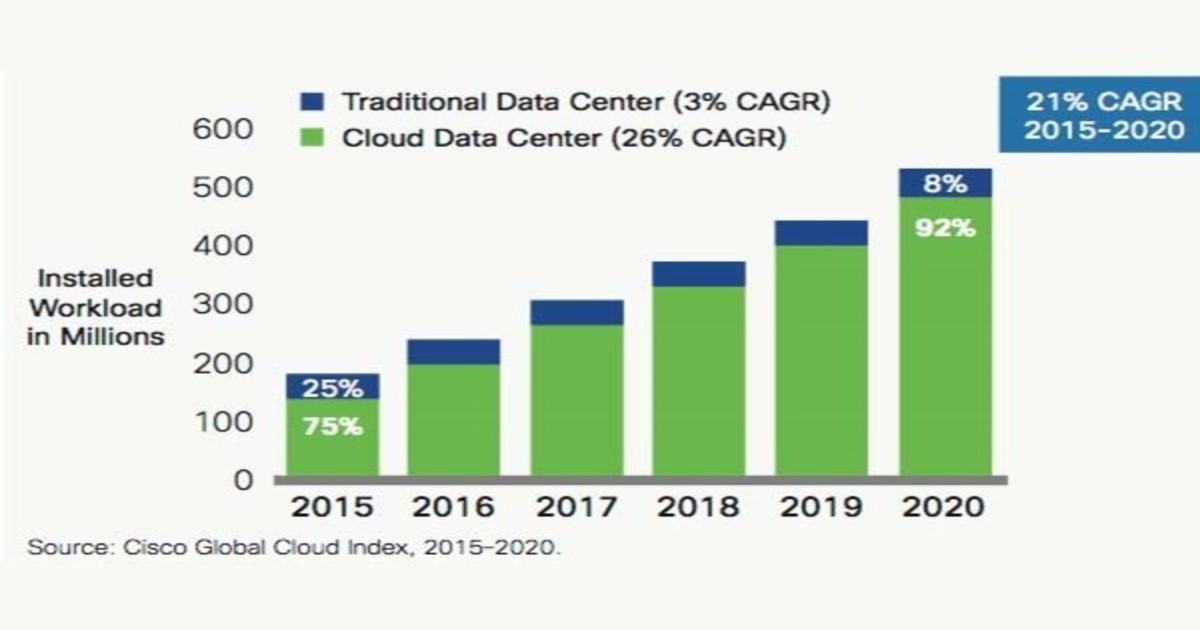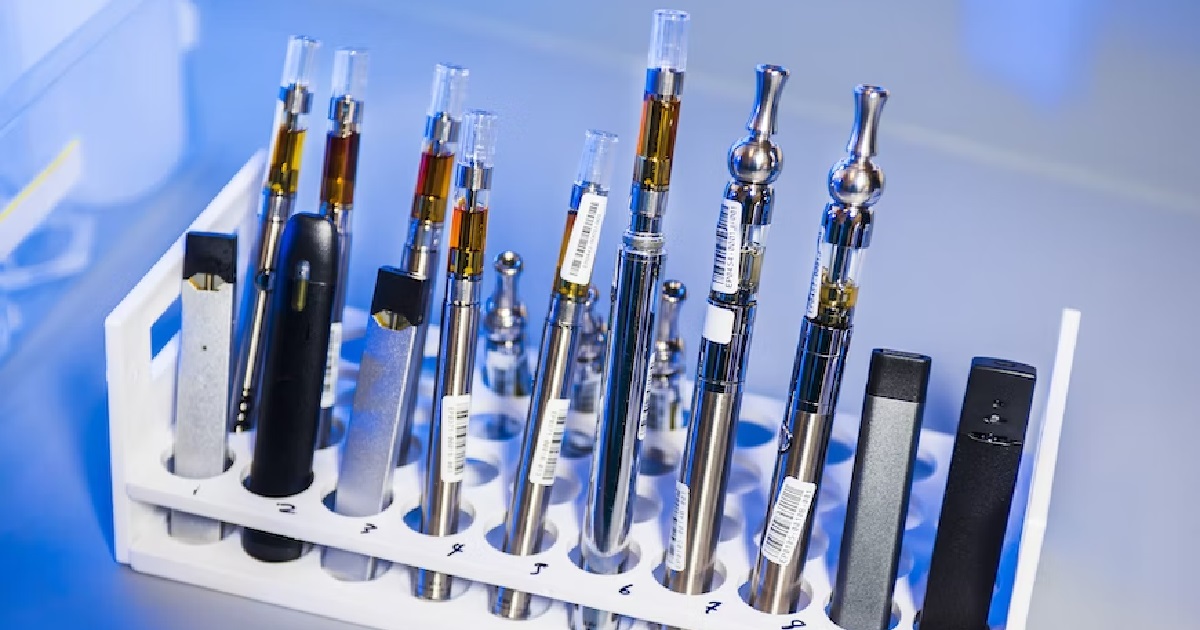
Health Technology, Digital Healthcare
Article | September 8, 2023
The recent COVID-19 pandemic in 2020 has changed the way the healthcare industry has been processing. It has transformed the healthcare sector digitally. Healthcare providers have changed services with the latest healthcare technology trends in digital and virtual platforms. Every healthcare provider is updating services by adopting digital advancements in their practices to increase their capacity to engage the maximum number of patients. Still more advancements and updates are needed to address many challenges in the industry such as cybersecurity, effective payment model, telehealth, patient experience, invoicing and payment processing, and big data.
Last year, wearable devices in the healthcare industry were quite popular with the patients. These devices have helped patients be aware of various healthcare metrics. Due to the introduction of the 5G internet, the wearable devices market is expected to have huge scope in 2021. Healthcare technology trends, such as the use of a digital dashboard scheduler or chatbots as a digital assistant, help hospitals and other healthcare organizations to better track appointments, contacts, demography, and make changes more efficiently as these are practical measures for modifying and monitoring patient activities.
Telemedicine, using video conferencing, digital monitoring, etc. have also been very helpful in containing the spread of the pandemic. It has made healthcare accessible for everyone, especially in rural areas. For remote patient care systems, telehealth and teleradiology reporting are very important technological upgrades. Healthcare technology trends of 2020, including patient portals, mobile health applications, remote care via telehealth, and wearable devices, played a major role in tackling the global pandemic situation. Artificial intelligence (AI), Machine Learning (ML), and Robotic Process Automation (RPA) also played a vital part in handling the situation. All the above-mentioned are COVID-19 fueled healthcare technology trends in 2020, which are expected to continue in coming years too.
Here is a detailed look into the healthcare technology trends, which are expected to address the new challenges and revolutionize the healthcare industry in 2021.
Technology Trends that will Revolutionize the Medical Industry in 2021
The digital transformation of the healthcare industry has been fast-forwarded by COVID-19 in 2020. Recognizing the healthcare technology trends, many healthcare providers have readily shifted their operations to the latest trending technologies. Others are also looking forward to setting their operations according to the upcoming trends.
It seems like almost all the healthcare providers genuinely wanted to transform their operating system to engage the maximum number of patients, due to the healthcare technology trends set after the hardest crisis in the healthcare industry virtual reality healthcare. So, before planning your healthcare strategy for 2021, don’t miss to include these healthcare technology trends of 2021 to achieve better healthcare outcomes and stand one step ahead of your competitors.
Patient Engagement Technology
One of the most competitive healthcare technology trends in 2021 will be patient engagement technology. There are countless technologies available in the market for patient engagement, evaluation, and campaigning. Due to high competition in the market, these tools are priced competitively.
Many healthcare organizations have started empowering themselves by achieving consistency in patient engagement with the help of available tools in the market. This also helps them achieve increased ROI. The healthcare technology trends, including remote care via telehealth, patient portals, wearable devices, mobile health applications, and many more, empower patients and increase patient engagement.
Hospitals and other healthcare organizations need to improve patient experience along with engagement. The entire road to patient satisfaction and experience can be changed with these healthcare technology trends in 2021.
Telemedicine
As telemedicine revolutionized the entire healthcare technology in 2020 by playing a vital role in containing the COVID-19 pandemic, it is expected to be one of the healthcare technology trends in 2021 too.
Using the advancement, it possible for healthcare professionals to diagnose and treat any number of patients remotely through phone calls, mobile apps, emails, and even through video calls. Telemedicine can provide patients with better access to all healthcare services, drive up efficiency and revenue, and lower healthcare costs.
Augmented Reality (AR) and Virtual Reality (VR)
The arrival of both AR and VR solutions has made way to witness meaningful advancements in the healthcare industry and technology. Advancements that could only be dreamt of a decade back, have become realities and been implemented. These two healthcare technology trends offer some serious promise to the world of healthcare, including educating patients before a treatment procedure.
AR offers one of the latest and most spontaneous options in the healthcare industry. AR allows doctors and surgeons to experience 3D effects on real-world scenes. This healthcare technology trend permits the professionals to stay grounded on actual procedures with access to all the data through various other emerging technologies. This makes doctors compare data, in the virtual world, to understand what the patient is experiencing and make a flawless diagnosis and suggest healthcare procedures.
Chatbots
It is either impossible or expensive for patients to get answers from specialists for their routine queries. But, chatbots make it easier and comfortable for healthcare service providers to answer questions of patients cost-effectively. Though chatbots are currently in the experimental phase to be used in healthcare solutions, they are most likely to have the necessary access to clinical scenarios by the beginning of 2021. It is expected to be one of the progressive healthcare technology trends in 2021.
As a digital assistant, chatbots allow healthcare providers to keep a track of contacts and appointments and make changes, when necessary. Chatbots are going to revolutionize the clinical processes and business, providing practical as well as clear measures for modifying and monitoring patient activities.
Big Data and 5G
5G is about to sweep the world in the coming months. With the extraordinary intensification in transmission bandwidth of 5G, users will construct a huge amount of data. With 5G, the Internet of Things (IoT) will be used largely to send and receive data. In the next three years, the global wearables market is expected to reach an annual turnover of US$52 billion. This can be attributed to the introduction of 5G wireless technology, one of the healthcare technology trends.
Healthcare providers will have the access to a huge amount of accurate data when data from wearable devices and other initiatives are added together. This is going to change the way providers collect data and the way doctors and patients communicate.
Thus, while you plan to upgrade your healthcare technology for 2021, don’t forget that you will be receiving a huge amount of data from patients, which can be attributed to one of the important healthcare technology trends of 2021, big data and 5G.
Artificial Intelligence
Artificial Intelligence (AI), one of the prominent healthcare technology trends of 2021, is developed to mimic human thought processes. GNS Healthcare AI system and IBM Watson are some of the most popular examples for the active use of AI in the healthcare process. This trend is going to rule healthcare processes and revolutionize medical care in 2021.
To improve healthcare professionals’ and hospitals’ care delivery to patients, Google’s DeepMind has built mobile apps and AI. The AI healthcare market is expected to reach US$7988.8 million in 2022 from US$667.1 million in 2016. This healthcare technology trend is expected to take the healthcare industry to a new realm by increasing patient engagement and experience in 2021.
Cloud Computing
Cloud computing is one of the major healthcare technology trends in 2021 that is going to change the industry. Attributed to the recent development of various healthcare technology trends, the cloud computing market is expected to reach US$35 billion in 2022 from US$20.2 billion in 2017.
This tremendous growth is attributed to the need of storing a high volume of data for healthcare organizations at a lower cost. In the healthcare domain, the main use of big data is in Electronic Health Record systems (EHR). It allows secure storage of various digital documentation such as demographics, medical history, diagnoses, and laboratory results. Cloud computing, an important healthcare technology trend, is expected to make the healthcare process smooth and flawless in 2021.
The biggest trend of 2021 in the healthcare industry is the holistic technological transformation of healthcare firms. Whether AI, ML, RPA, telemedicine, big data, chatbots, or cloud computing, almost everything related to data management and monitoring will peak in 2021. These healthcare technology trends will rule healthcare in 2021. Moreover, targeted and personalized care for critical diseases is expected to be another trend in the coming years.
Frequently Asked Questions
What are the technology trends in healthcare?
Trending healthcare technologies are AI, ML, RPA, cloud computing, big data, chatbots, telemedicine, etc. AI, the life-changing technology is going to completely transform the healthcare industry in the coming years starting from 2021.
What are the most important trends in healthcare technology?
Augmented and virtual reality, Artificial Intelligence, the Internet of Medical Things, Machine Learning, chatbots, cloud computing, telemedicine, etc. are the most important technology trends in the healthcare industry.
What are the current technological trends in healthcare?
Artificial Intelligence (AI) and Machine Learning (ML), Internet of Medical Things (IoMT), Augmented Reality (AR) and Virtual Reality (VR), Electronic Health Records (EHR), Blockchain and data security, health-tracking apps, therapeutic apps, and telehealth are the major current technological trends in the healthcare industry.
Read More

Health Technology, Digital Healthcare
Article | September 7, 2023
As competition for patients intensifies, more hospitals and health systems are embracing a consolidated, single-bill approach for services rendered. Creating a single bill for the patient’s portion of inpatient or outpatient services can help eliminate confusion and reduce the ill will that frequently results when patients receive multiple invoices for a single care event. Yet incorporating anesthesia charges into a consolidated invoice is often problematic due to the unique nature of the anesthesia billing compliance.
Anesthesia Billing Service Hurdles
A few weeks ago, I met with the CEO of a 300-bed hospital. We discussed anesthesia billing, and he explained that his hospital traditionally outsourced this portion of its billing due to the more complex nature of anesthesia coding and the need to collect anesthesia minutes for billing. Unlike most inpatient services, anesthesia charges are not directly derived from CPT codes but instead utilize minutes and modifiers unique to the specialty.
That means coders must use a CPT crosswalk to account for ASA codes, base and time units, emergency- and physical-status monitors, split anesthesia units reflecting CRNA involvement, and other specialty-specific nuances. Most coders and hospital billing staff are not trained in these complexities, and hiring and retaining capable staff in today’s competitive market can be difficult. Moreover, many billing platforms are simply not equipped to incorporate all the variables necessary to produce an accurate anesthesia bill.
As a result, producing a consolidated patient bill that includes anesthesia is tricky. Yet leaving anesthesia off a single bill can undercut its value since, after facility and surgical charges, anesthesia often is one of the largest cost items patients incur. Fortunately, we at Change Healthcare know how to roll anesthesia charges into existing hospital billing systems to produce an accurate and timely single patient bill.
Helping to Reduce Costs
The benefits of consolidated billing extend beyond an improved patient experience. Producing just one bill reduces costs and repetition at both the front and back end of the revenue cycle management process. It can also ease staff burden when collecting on self-pay accounts, since there’s only one bill per patient. Finally, consolidated bills can help increase revenue by simplifying collections when patients present for follow-up care.
Here’s an example: When the patient comes back for post-surgery physical therapy, a hospital employee at the registration desk can remind them that they still owe $150 for anesthesia and ask if they’d like to take care of that now. In my experience, patients usually hand over their credit card and settle their bill on the spot when asked at the time of care about a balance due.
System-Agnostic Billing Across Hospital Platforms
Change Healthcare has a long history of providing full-service, outsourced anesthesia-billing services to hospital and health-system clients. Unlike most other billing vendors, we’ve developed what we call a system-agnostic approach. That means we’ll provide billing services on our proprietary system or on the hospital’s existing billing platform, regardless of type, to generate accurate anesthesia-billing results.
In practical terms, we’ll function as part of your billing team and use the same system your coders and billing staff rely on to generate anesthesia charges that can be included in a single patient bill.
System-agnostic billing also allows us to provide clients with custom anesthesia reporting that wouldn’t otherwise be available with an outsourced billing solution. This helps clients gain far greater visibility and insight into anesthesia-billing charges. And by incorporating our anesthesia coding and billing capabilities into your existing billing system, you’ll be spreading the platform’s fixed costs across a greater number of departments.
The bottom line? It’s not a heavy lift for us to virtually embed our trained anesthesia coders and billing professionals into your system. Our specialists will review your existing platform and provide, at no obligation, a return-on-investment analysis that can help you determine whether outsourcing anesthesia billing to capture claims on a single hospital bill makes sense for you.
We expect the answer will be yes. Not only will you enjoy greater system efficiencies, but you’ll be in a position to produce a single bill that truly reflects the entire episode of care.
Read More

Health Technology, Digital Healthcare
Article | August 21, 2023
Over the past twenty-five years most businesses have been revolutionized by the easy availability of cloud and mobile-based computing systems. These technologies have placed power and access into the hands of employees and customers, which in turn has created huge shifts in how transactions get done. Now the companies with the highest market value are both the drivers of and beneficiaries of this transition, notably Apple, Facebook, Amazon and Alphabet (Google), as well as their international rivals like Samsung, Baidu, Tencent and Alibaba. Everyone uses their products every day, and the impact on our lives have been remarkable. Of course, this also impacts how businesses of all types are organized. Underpinning this transformation has been a change from enterprise-specific software to generic cloud-based services—sometimes called SMAC (Social/Sensors/Mobile/Analytics/Cloud). Applications such as data storage, sales management, email and the hardware they ran on were put into enterprises during the 80s and 90s in the client-server era (dominated by Intel and Microsoft). These have now migrated to cloud-based, on-demand services.
Read More

Health Technology, Medical Devices
Article | November 2, 2022
Smoking has a lot of consequences to one’s health. It can lead to cancer, heart disease, and chronic obstructive pulmonary disease—all of which are chronic diseases. This is part of the reason why the Health and Human Services agency reports that 70% of adult smokers want to quit. As a medical provider, adults looking to stop smoking will come to you for advice and treatment. One alternative smoking product you might want to recommend is an e-cigarette, given their prevalence in recent years.
In this article, let’s take a deeper look at whether e-cigarettes’ should be recommended for smoking cessation and what other treatment options to endorse to patients.
Are e-cigarettes approved for smoking cessation?
Electronic cigarettes, more commonly known as e-cigarettes, are devices that vaporize nicotine-based liquid to be inhaled by its user. It almost replicates the experience of smoking a cigarette due to the device’s shape and the vapor it produces. However, the FDA has yet to approve e-cigarettes for smoking cessation because there is currently limited research on their effectiveness, benefits, and risks for the human body.
Additionally, scientists at the University of California found harmful metals in the vapor from tank-style e-cigarettes. These e-cigarettes are equipped with high-power batteries and atomizers to store more liquid. These result in high concentrations of metals like iron, lead, and nickel in the vapor. Exposure to and inhaling metallic particles may impair lung function and cause chronic respiratory diseases. As such, medical providers should not recommend e-cigarettes for smoking cessation.
What can medical providers recommend for smoking cessation?
Smoking cessation medication
Presently, two FDA-approved prescription medicines for smoking cessation are Bupropion and Varenicline. Bupropion is an antidepressant that decreases tobacco cravings and withdrawal symptoms. It does this by increasing the brain chemicals dopamine and noradrenaline. This comes in a pill and can be used alongside other smoking cessation aids.
Varenicline also reduces cravings and nicotine withdrawal symptoms. It blocks nicotine receptors in the brain, decreasing the amount of enjoyment one gets from smoking. One thing to note about this is that it will take several days for Varenicline's effects to take place. Therefore, it's best to prescribe these pills 1-2 weeks before the patient quits smoking. Like Bupropion, Varenicline may be used simultaneously with other quit-smoking products.
Nicotine Replacement Therapy
Nicotine replacement therapy (NRT) is a treatment involving nicotine consumption at gradually decreasing levels. This reduces the patient’s desire to smoke without them having to quit cold turkey. NRT involves using nicotine alternatives that don’t produce smoke, such as nicotine pouches and nicotine gum.
Nicotine pouches are oral products containing ingredients like nicotine, flavoring, and plant-based fibers. These are placed between the lip and gum, where nicotine is absorbed into the bloodstream. Different variations have different strengths. On! pouches come in different strengths: 2mg, 4mg, and 8mg. Patients may start from 8mg variants and gradually decrease this dosage as their NRT progresses. Pouches also come in a wide range of flavors—including citrus, mint, and berry—to entice users.
Meanwhile, nicotine gum is chewing gum that contains nicotine. It is chewed a few times before being parked between the gums and cheek for nicotine absorption. The nicotine gums by Lucy are a significantly better alternative for tobacco users. Like pouches, this gum comes in several flavors, such as cinnamon, mango, and wintergreen, and different strengths ranging from 2mg to 6mg.
Counseling
The recommendations mentioned above—medication and NRT—are more effective when coupled with counseling. A Primary Care Respiratory Medicine study revealed that successful smoking cessation is best attained through pharmacological treatment and counseling. Sessions typically involve a patient meeting with a counselor and they discuss their smoking habits, possible causes, and how to mitigate them. Medical providers should include counseling in addition to medication and NRT.
E-cigarettes have yet to be approved by the FDA as smoking cessation aids. For now, medical providers should provide medication, NRT, and counseling to patients who want to quit smoking.
Read More